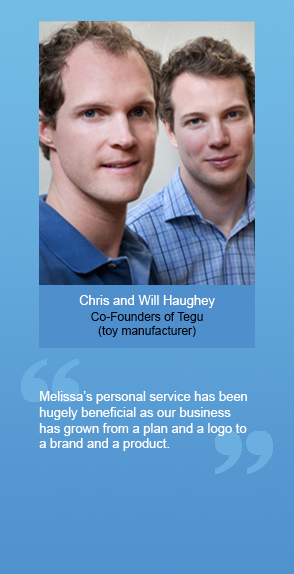My Los Angeles law office serves successful small businesses, entrepreneurs and creative individuals.
Trademarks and Copyrights Learn about my services and the fundamentals of trademarks and copyrights.
Business Formation Learn about my approach and the added benefits of forming a corporation, LLC, or partnership.
Business Contracts and Business Law Read about the value of clear business contracts that protect your interests.
Entertainment Law, Music Law and Fashion Law See why it’s useful to hire a good attorney with experience in entertainment law, music law and fashion law.
My clients include Entrepreneurs, Writers, Designers, Artists, Influencers, Actors, Retailers, Web Developers, Consultants, Producers and Production Companies and other Premier Small Businesses located in and outside of Los Angeles.
I graduated from Stanford University with my M.A. and B.A. in English and from UCLA School of Law with my J.D. and opened my own law firm in Los Angeles after working as an entertainment and music law attorney at Manatt, Phelps, and Phillips, LLP (a top California law firm), as an in-house attorney handling contracts and business affairs at BCBG (a major fashion company), and as an in-house attorney at Palan Music (an international music publishing company which has since merged with MCS). See my bio for details.
Legal Tips
May Tip 2 2024: Many people call me to see if I can protect their fashion designs with copyright registration. Generally, fashion designs cannot be protected via copyright registration due to the Useful Articles Doctrine. By way of example, a design for a leather motorcycle jacket cannot typically be protected via copyright. However, certain elements of a garment can potentially be protected, such as prints on fabric or embroidery. For more, see “What Kinds of Work Can Be Protected by Copyright?”
May Tip 1 2024: Many people have questions about what exactly a fashion lawyer can do for them. Fashion lawyers can give advice concerning protecting brand names, textile prints, photographs, websites and more, and also give advice about the types of contracts that can be beneficial to your fashion business. For more, see “What Do Fashion Lawyers Do?“
April Tip 2 2024: Many people have a “handshake deal” and think it’s a perfectly acceptable agreement. While a handshake deal can potentially be binding, the issue can be that when there’s a conflict, it may be challenging to prove what was agreed upon, if anything. Therefore, it may be preferable to have an agreement in writing signed by both parties, so there is one clear document in writing in the event of a disagreement. For more, see “Why Use Written Contracts for your Business?“
April Tip 1 2024: The laws concerning music, recording artists and record producers can be very confusing. This is why it may be a good idea to hire a music lawyer who understands music publishing, music royalties, affiliating with ASCAP and BMI and master use and sync licenses and. For more, see “What Do Music Lawyers Do?”
March Tip 2 2024: Many people call me asking if they “have a case”. If you want to sue someone, you may need a litigator, which I do not handle. I am a transactional attorney. Moreover, I have found based on over 24 years of experience that a clear contract in writing can prevent many legal issues that might turn into litigation. For more, see “Why Use a Good Lawyer to Write Your Contracts?”
March Tip 1 2024: Many people call me in order to ask if they need to form a separate business entity like a corporation or LLC. While it may not be required, it can be a good idea under certain circumstances to form a separate business entity to potentially shield you from some liability and due to other reasons, such as making your small business seem larger and more organized. For more, see “Are There Other Reasons to Form a Business Entity?”
February Tip 2 2024: Some people read that a handshake deal or verbal contract can be binding and wonder why a written contract is even necessary. However, it is generally a good idea to have written contracts with business partners so there is a clear agreement to refer to and to potentially help avoid litigation. For more, see “How Can a Good Business Contract Help My Business?”
February Tip 1 2024: Many potential clients call me with questions about copyrights for music. There are two forms that songwriters and recording artists typically use to apply for copyright protection, Copyright Form PA and Copyright Form SR. There is no substitute for U.S. federal copyright registration. For more, see “Why Should I Register a Copyright?”
January Tip 2 2024: Many potential clients call me after registering their scripts with the WGA, not knowing that U.S. Copyright registration can be the most important registration for a script, screenplay or treatment. For more information on the importance of U.S. Copyright registration, see “What Specific Rights Does a Copyright Owner Have?”
January Tip 1 2024: If you want to launch a fashion business, it is a very good idea to consult with an attorney about several legal issues: potentially forming a separate corporation or LLC to provide some additional legal protection and means of ownership, applying to register a trademark to protect your brand, and launching a website with a terms of use and privacy policy. For more, see “What Do Fashion Lawyers Do?“
December Tip 2 2023: If you received a letter demanding that you pay money and remove a photo from a website or social media platform, then, you might not have realized that posting a photo that you don’t own, can potentially be the basis for a copyright infringement law suit. Although this might not seem to make sense, especially if the photograph is a photo of you, copyright law generally provides that the photographer owns the photo unless it was a work for hire or the photographer otherwise transferred the photographer’s rights to the photo. For more, see “What Specific Rights Does a Copyright Owner Have?“
December Tip 1 2023: If you are inspired to develop your own brand of clothing, skincare products, jewelry or accessories, it is generally a great idea to consult with a trademark attorney before spending money on press, advertising and manufacturing and selling your products. This is because if you are held liable for trademark infringement, one of the potential forms of damages to be awarded to the plaintiff is all of your profits from the infringing goods. For more see “What is Trademark Infringement?”
November Tip 2 2023: Many people call me thinking that if they appear in a photo, they have the right to use the photo however they like. In reality it is most likely that the photographer who took the photo owns all rights to it, including the copyright. If you have questions about photographs and how they can be used, it’s generally a good idea to consult with an intellectual property attorney. For more see “What Rights Does a Copyright Owner Have?”
November Tip 1 2023: Setting up an online retail store can trigger many copyright and trademark issues that should be considered before going live with a website. The brand name or logo you use on your retail site could result in the receipt of a cease and desist letter or your site being taken down. It is generally a good idea to consult with an intellectual property lawyer prior to starting to sell goods and prior to advertising your online retail store, so you can minimize the risk of infringement. For more see “What is Trademark Infringement?“
October Tip 1 2023: Contracts can be formed verbally and through texts and emails, but contracts that are not in writing and signed by both parties can be challenging to prove in court or in arbitration. Thus, it’s generally a good idea to have a clear document in writing to rely on in court, settlement negotiations or arbitration. For more, see “Why Use Written Contracts for your Business?“
Television Commentary—Co-Branding and Licensing Agreements in the Fashion Industry

October 20, 2022
Melissa was interviewed on BBC News Worldwide about Ye West’s
antisemitic remarks and their impact on various valuable fashion contracts with Adidas.










